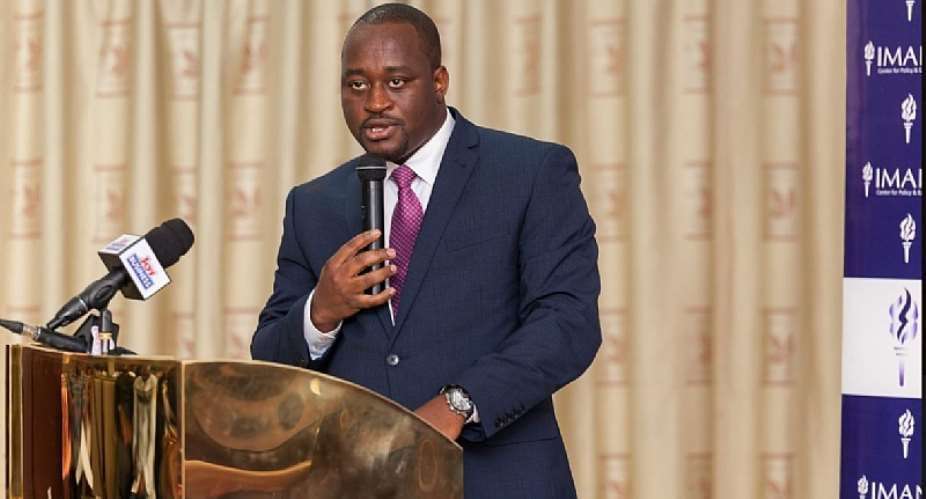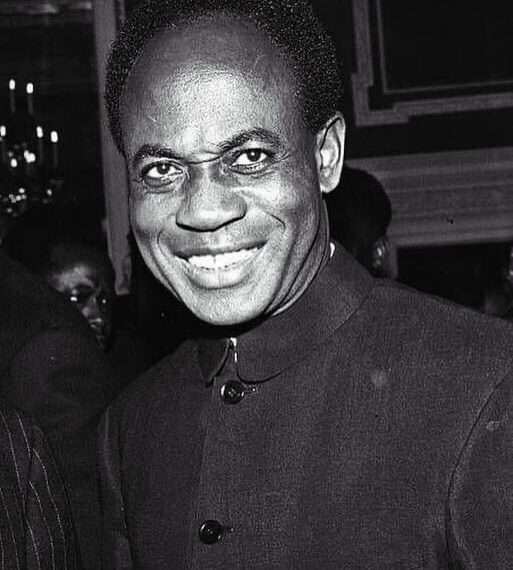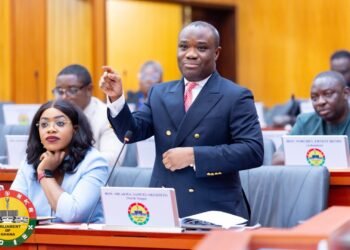Dr. Theo Acheampong, a Political Risk Analyst and Fellow at the IMANI Centre for Policy and Education has reaffirmed Dr Kwame Nkrumah as the founder of Ghana.
In an insightful analysis, Dr Acheampong delved into the contrasting visions and strategies that defined the independence movement in the Gold Coast, underscoring the pivotal role of Dr. Kwame Nkrumah in steering the country towards self-governance and ultimately establishing Ghana as a sovereign state.
According to him, the quest for increased self-governance in the Gold Coast began as early as the 1930s, driven by aspirations for economic, social, and political development.
Despite these aspirations, Dr Acheampong pointed out that the specifics of self-government remained ambiguous, arguing that even though the British colonial administration responded with constitutional reforms no definitive timeline for independence was set.
Dr. Acheampong highlighted the absence of any official British commitment in 1947 to grant independence by 1957, challenging some contemporary claims.
The IMANI Fellow further indicated that the elite dissatisfaction with the 1946 Burns Constitution catalyzed the formation of the United Gold Coast Convention (UGCC) in August 1947.
To him, the UGCC’s mission was to achieve “self-government in the shortest possible time,” a goal that lacked a concrete timeline.
“The wealthy merchant Paa Grant paid for Nkrumah’s boat fare from Liverpool to the Gold Coast, and he became UGCC general secretary in December 1947. It is also recorded that Danquah and Nkrumah disagreed over the direction of the independence movement from the get-go and through 1948, and this eventually led Nkrumah to break away and form the Convention People’s Party (CPP) over a year later in June 1949. He was with the UGCC for a little over a year.
“Nkrumah was already a known political activist/organizer before he joined the UGCC, which is precisely why the UGCC brought him in to help with its organization. Nkrumah’s grassroots efforts saw him traveling a lot to the villages, towns, and other rural areas previously ignored by UGCC leaders”.
Dr Theo Acheampong, Political Risk Analyst and Fellow at the IMANI Centre for Policy and Education
Furthermore, Dr Theo Acheampong pointed out that the CPP, under Nkrumah’s leadership, adopted the motto “SELF-GOVERNANCE NOW,” which starkly contrasted with the UGCC’s more gradualist approach.
This immediate call for self-government, he noted resonated deeply with the masses, reflecting Nkrumah’s acute political acumen and ability to gauge public sentiment effectively.

Dr Acheampong opined that Dr Nkrumah’s strategy of engaging the grassroots—mobilizing the so-called veranda boys and girls—was instrumental in sustaining organized mass protests and civil disobedience campaigns.
This approach, he contended stood in sharp contrast to the UGCC leaders’ inability to galvanize similar support, adding that the effectiveness of Nkrumah’s methods was evident in the electoral successes of the CPP in 1951, 1954, and 1956, underscoring his superior political nous and organizational prowess.
The Road to Independence
While acknowledging the contributions of the UGCC and figures like Dr. J.B. Danquah in advocating for increased self-governance, Dr. Acheampong asserted that Nkrumah’s leadership ultimately proved decisive.
He emphasized that Nkrumah’s advocacy for a united, liberated, and socialist Africa, as expressed at the fifth Pan-African Congress in Manchester in 1945, further solidified his ideological commitment to immediate self-governance.
“We must also not discount that Nkrumah, as far back as the fifth 1945 Pan-African Congress held in Manchester (and organized by George Padmore), had advocated for a united, liberated, and socialist Africa.
“So, he, JB, and other UGCC members all caught the ‘independence/liberation bug’ of the time, but there were major disagreements on how to attain this. Nkrumah’s side ultimately won the debate and gained us full independence in this unitary republic called Ghana on 6 March 1957”.
Dr Theo Acheampong, Political Risk Analyst and Fellow at the IMANI Centre for Policy and Education
In conclusion, Dr. Acheampong emphasized that while many contributed to the nationalist struggle, Dr Kwame Nkrumah’s role as the primus inter pares—first among equals—stands out.
He pointed out that Nkrumah’s strategic vision, grassroots mobilization, and unwavering commitment to immediate self-governance earned him the title of the Father of the Nation, adding that his leadership was pivotal in transforming the Gold Coast into the sovereign state of Ghana.
READ ALSO: No Positivity, No Progress: Analyzing Challenges in the Creative Industry























